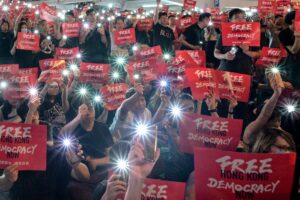
What the Freedom Agenda Can Still Teach Us
Many derided it as naïve idealism, but the vision undergirding the Freedom Agenda offers lessons for the biggest global tests of our time.
756 Results

Many derided it as naïve idealism, but the vision undergirding the Freedom Agenda offers lessons for the biggest global tests of our time.
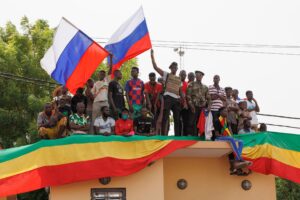
A string of Kremlin-backed military coups have brought a collection of juntas to power. The West should resist calls to placate them, and instead stick to its values and push for a return to civilian rule.

Latin American voters are aggrieved, impatient, and eager to elect candidates who offer a break with the past—sometimes whatever that break may be. This factor, combined with high crime and middling economic growth, has led to wild swings and shrinking political rights. But can the region get itself unstuck?
Is global democracy really in freefall? Here’s what they think.
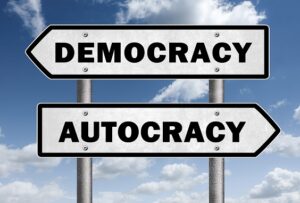
In the new issue of the Journal of Democracy, Kurt Weyland argues that democracy almost always triumphs over populism. In fact, while strongmen may strain democratic institutions, they rarely come out on top.
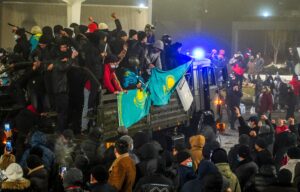
Thousands took to the streets to protest. While the regime promises to listen, its actions make clear: Dissent will not be tolerated.

Vladimir Putin has become a one-stop shop for authoritarians around the world, providing them whatever they need to advance their cause. Democracy’s defenders don’t get the same support — but it’s time for that to change.
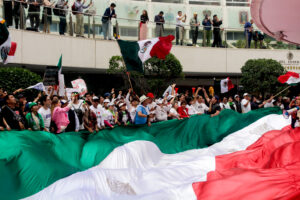
The country’s outgoing president is determined to bulldoze Mexico’s judicial system. His attack on the rule of law is even worse than most people realize.

The 2024 International Day of Democracy is spotlighting the potential of artificial intelligence to improve governance while also recognizing the risks it poses. Over the last year, the Journal of Democracy has published some of the world’s leading AI experts on the promise and peril it presents for democracy.
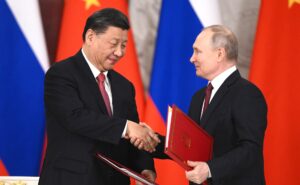
Authoritarians are evolving — becoming more unconstrained and repressive at home, and more destructive on the global stage. The following essays unpack the authoritarians’ toolkit, revealing their strategies for taking power and upending the liberal world order.

The biggest election in this “year of elections” is finally over. In contests across the world, voters have spoken. But what do their choices tell us about the state of democracy globally?
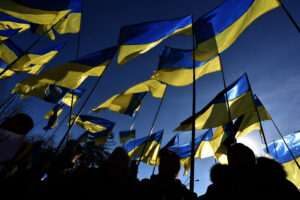
Ukrainians’ first priority is defending their country from Russia’s invasion. They would rather hold fair, free, and inclusive elections than vote for the sake of voting.

The system that Russia’s autocrat built wasn’t designed to survive the pressures it is now facing.
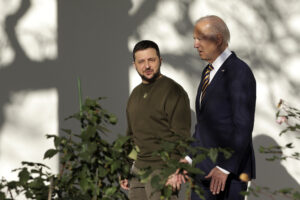
Moscow and China pose a great danger to the democratic world. But they pose threats that need to be managed, not won. Every great foreign-policy battle doesn’t end with a decisive victory.
"The Authoritarian Resurgence: China, Russia, Saudi Arabia, and Venezuela" panel discussion featuring JoD authors Javier Corrales, Andrew J. Nathan, Lilia Shevtsova, and Frederic Wehrey. (4/23, 12-2 pm, at NED)
April 14, 2015

The strongman lost in a landslide, and the Venezuelan people are paying the price.
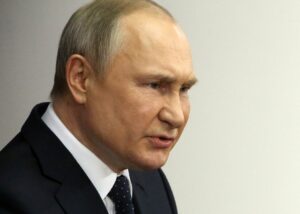
Why we must tackle the threat posed by Putin and his authoritarianism head on.

The Venezuelan strongman lost the election and everyone knows it. He has nothing left to offer but violence and repression. It will be his undoing.
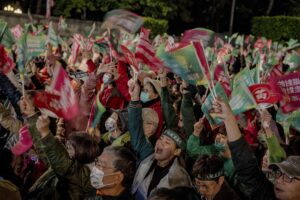
Millions of voters are casting ballots in a string of elections across the globe this year. At the midyear point, how well is democracy holding up?